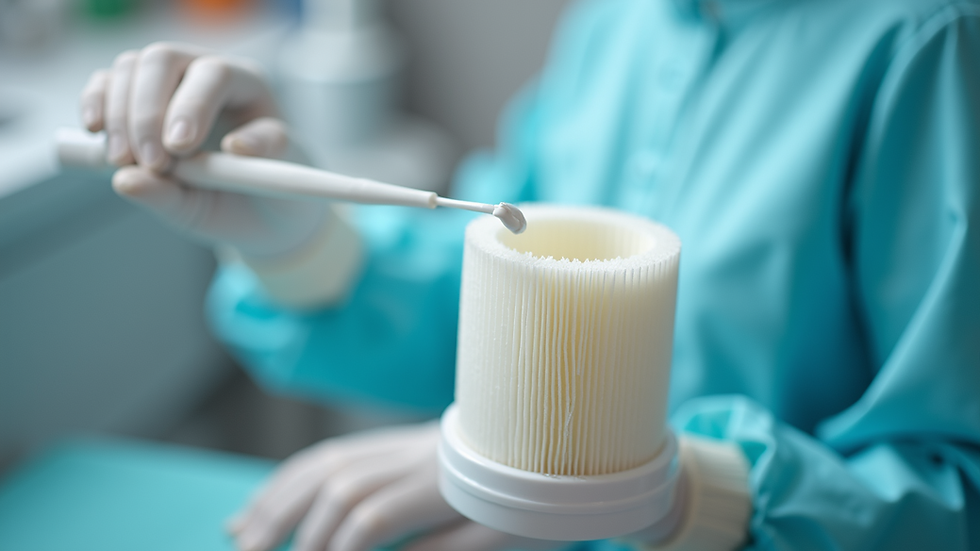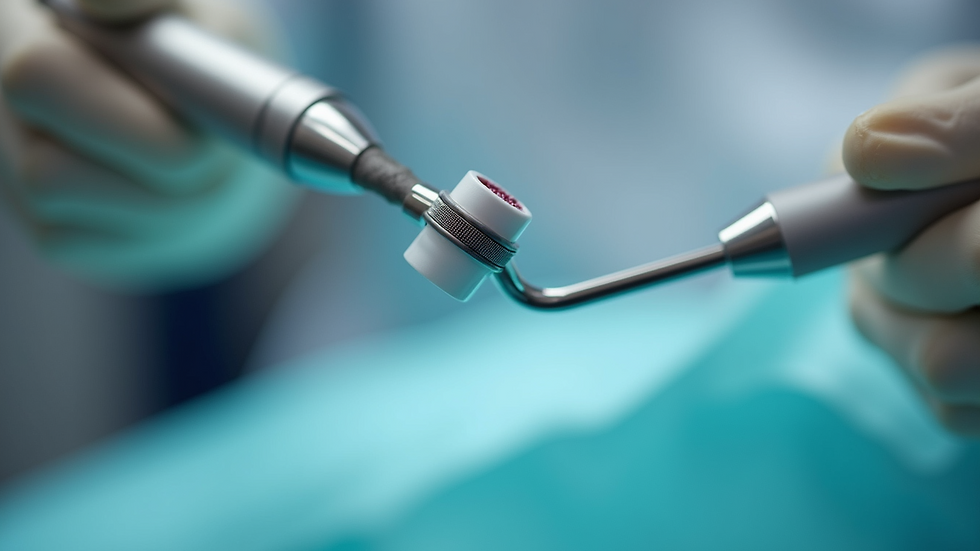How to Extend the Lifespan of Your Dental Equipment
- Randy Coppernoll
- May 12, 2025
- 4 min read
Dental equipment is a significant investment for any dental practice. Whether you are a small clinic or a large dental office, maintaining your tools and machinery is essential to prolonging their life and ensuring effective performance. Regular maintenance not only helps you save money by reducing the need for replacements but also ensures that your patients receive the best possible care. This guide offers practical tips and strategies to extend the lifespan of your dental equipment.
Understanding Your Dental Equipment
Every piece of dental equipment serves a specific purpose, from diagnostic tools and imaging devices to sterilization equipment. Familiarize yourself with each item to understand its necessary upkeep. For instance, autoclaves need regular calibration to ensure that sterilization cycles are effective, while dental chairs require periodic checks for mechanical issues.

Understanding the unique needs of each piece of equipment can help in formulating maintenance schedules, ensuring that nothing is overlooked.
Regular Maintenance of Dental Equipment
Maintaining your dental equipment should be a regular part of your practice. Implement a schedule that outlines when each piece of equipment needs to undergo cleaning, calibration, or servicing. Here are some crucial maintenance practices to adopt:
Daily Cleaning: At the end of each day, clean all surfaces of the equipment with disinfectant wipes. This practice prevents cross-contamination and keeps devices hygienic for the next patient.
Weekly Checks: On a weekly basis, inspect the equipment for any signs of wear or malfunction. Ensure that all settings are as they should be and that there are no visible damages.
Monthly Servicing: Set aside time to perform thorough checks and maintenance of your more specialized tools, such as x-ray machines or surgical instruments. Schedule professional servicing when necessary.
Annual Reviews: Once a year, invite a professional to review your dental equipment. They can identify potential issues before they become serious problems, enabling timely intervention.

According to the American Dental Association, regular maintenance can extend the lifespan of dental equipment by at least 20 percent. Investing time and effort into this can save you money in the long run.
Proper Usage of Dental Equipment
The way you and your staff use dental equipment plays a critical role in its longevity. Improper handling can lead to damage and unplanned repairs. Here are some usage tips to follow:
Follow Manufacturer Instructions: Always adhere to the guidelines provided by the manufacturer for operating and maintaining the equipment. This includes using the correct settings, tools, and processes.
Train Your Staff: Ensure that all staff members are adequately trained on the correct use of dental equipment. Provide ongoing training as new devices are introduced to your practice.
Use Equipment for its Intended Purpose: Avoid using tools in ways they weren’t designed for. For example, don’t use extraction tools for scaling; this misuse can lead to rapid deterioration.
By following proper usage practices, you can significantly reduce the chance of damaging your dental equipment.
Investing in Quality Equipment
The quality of the dental equipment you choose will impact its lifespan significantly. While it may be tempting to save money by buying cheaper products, investing in high-quality equipment will prove more cost-effective in the long run. Here’s why:
Durability: High-quality dental equipment is typically built to last. It can withstand the rigors of daily use and, when properly maintained, can serve you for years.
Better Performance: High-quality tools generally provide superior performance. This can enhance the patient care experience and improve your practice's reputation.
Warranty and Support: Many premium dental equipment manufacturers offer extensive warranties and ongoing customer support, helping you address potential issues quickly.
Before making a purchase, read reviews and seek recommendations from other dental professionals about the brands and models that offer the best performance and durability.

Keeping Records and Documentation
Creating a log of your dental equipment's maintenance and repairs is essential for tracking its performance over time. Recordkeeping helps identify patterns, such as frequent repairs or issues. Here's how to implement an effective record-keeping system:
Maintenance Logs: Keep a clear record of when equipment was serviced, by whom, and what was done. This documentation will also serve as a reference for warranties, showing you have followed proper maintenance procedures.
Usage History: Track how often each piece of equipment is used. This can guide you in prioritizing maintenance for the most frequently used items.
Equipment Lifespan Records: Maintain data on when equipment is purchased, its effective lifespan, and any significant repairs it has undergone. This information can guide future purchasing decisions.
An organized documentation system can help you plan preventive maintenance and forecast when to replace aging equipment.
Engaging a Professional for Dental Equipment Repair
Despite your best efforts, dental equipment can sometimes malfunction. Having a reliable dental equipment repair technician is crucial for minimizing downtime. Here are steps to take when seeking repair assistance:
Choose a Certified Technician: Look for technicians who are certified and specialize in dental equipment. They will have the expertise necessary to handle the intricacies of your specific tools.
Regular Check-Ups: Schedule regular check-ups with a service provider to assess your equipment's condition. They can recommend repairs or replacements as needed, keeping your equipment in top shape.
Evaluate Service Quality: Ensure that the technician provides timely service and clear communication. This relationship can make a significant difference in how quickly you can resume operations after a malfunction.
For more information on maintaining and repairing your dental equipment, check out dental equipment repair.
Final Thoughts on Dental Equipment Longevity
Taking proactive steps to extend the lifespan of your dental equipment is essential for your practice's success. Regular maintenance, proper usage, investing in quality tools, and maintaining organized documentation are all critical practices. In addition, engaging qualified repair technicians ensures that you have support when challenges arise.
By implementing these strategies, you can keep your dental practice running smoothly while providing the highest level of care for your patients. Prioritize your equipment's maintenance now, and you will reap the benefits in the years to come.



Comments